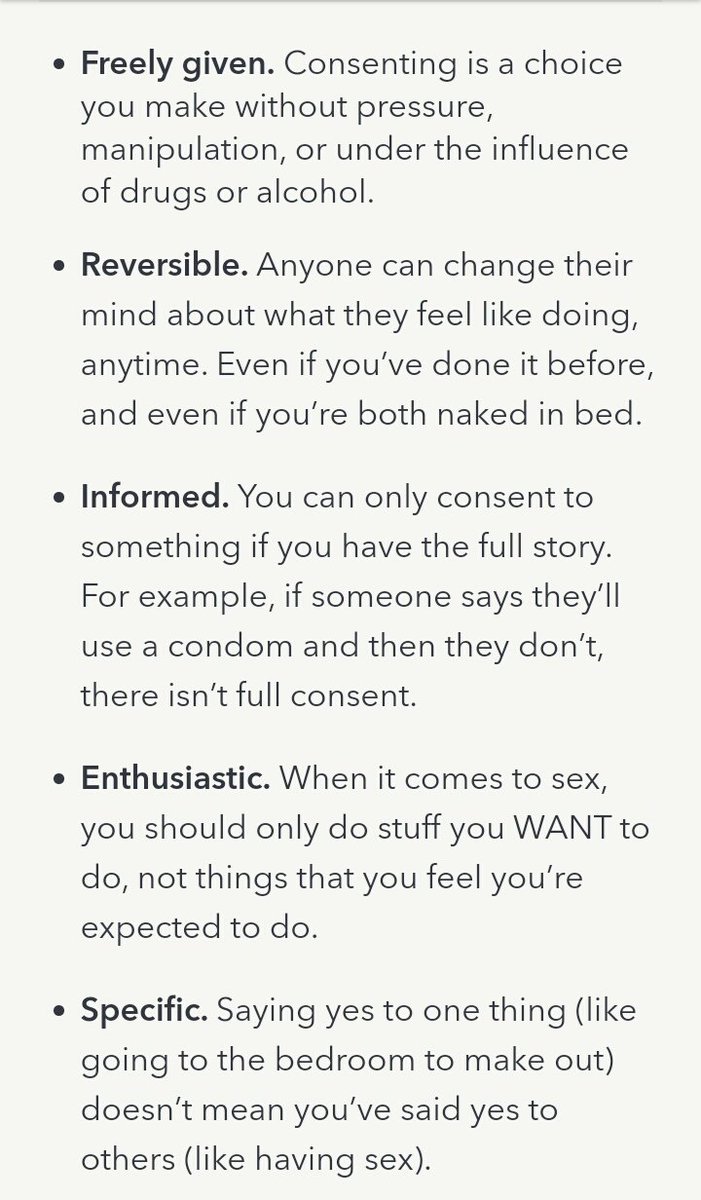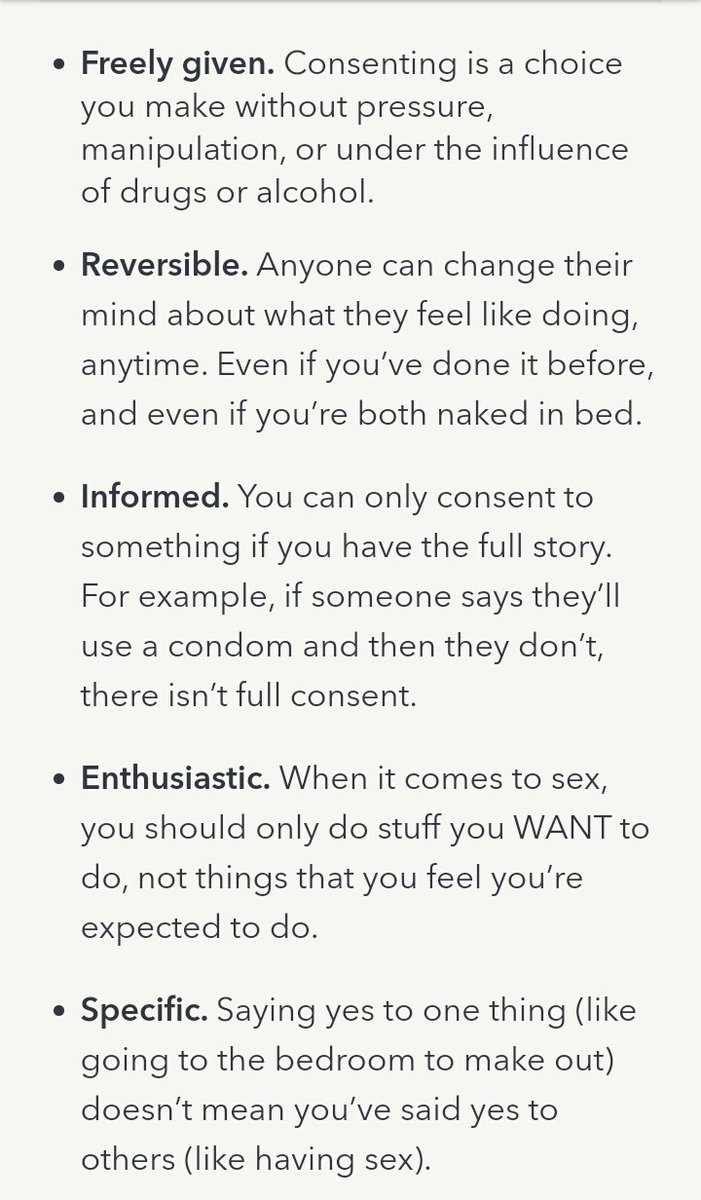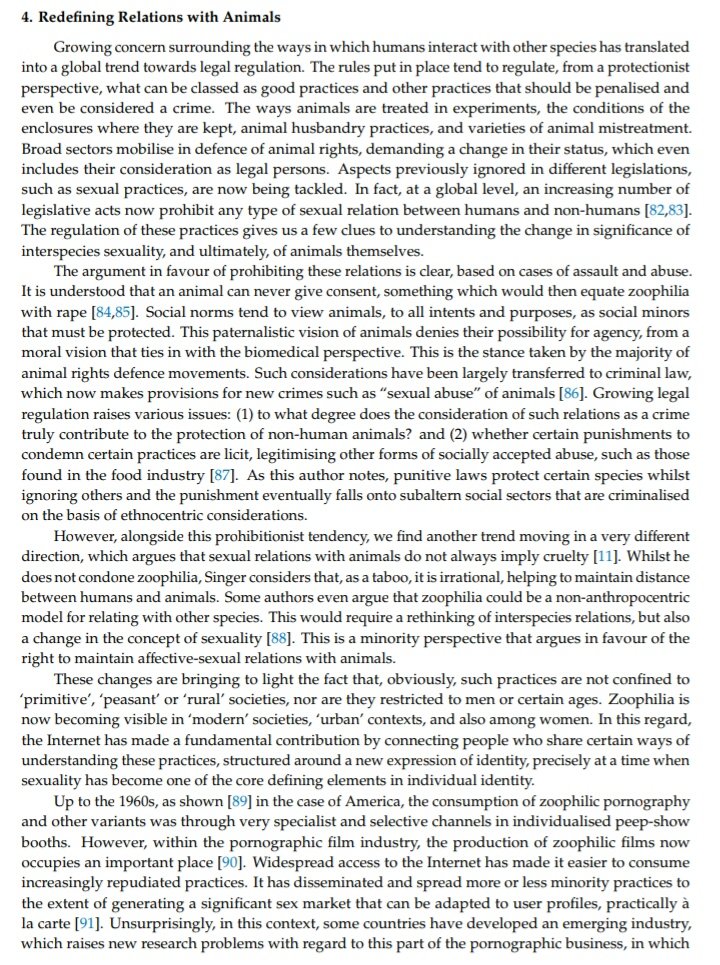
Unfortunately, it has come to my attention that a very talented artist whose work is beloved by many zoos and furries has used their influence and platform to unintentionally spread harmful misinformation. Despite the good intentions of @Elicitie, this must be corrected.
https://twitter.com/Elicitie/status/1545545659016781824
#furry #furries #furryart #feral #Animals #AnimalWelfare #AnimalLovers #animalscience #psychology #paraphilias #science #criticalthinking #scicomm #sex #sexuality #LGBTQIA @TheAASECT #zoophilia #zoosexuality
Power Dynamics of Bestiality and Marginalized People.
Power Dynamics of Bestiality and Marginalized People.
This is a position @Elicitie, I, zoos, and many animal advocates share. Indeed sexual contact between homosapiens and other taxalogical families should be consensual. The term 'zoophilia' has been superseded by 'zoosexuality' in the literature.
https://twitter.com/Elicitie/status/1545545661181042689?t=8AHk7p2y_A56ms01c61x6Q&s=19
Indeed, if any zoo needs help please contact an @AASECT counselor or therapist, @HaniMiletski also has great resources. But what do people mean when they say this?
https://twitter.com/Elicitie/status/1545545662405775366?t=UigDkseJ7l_fpqZtCECJkQ&s=19
Usually, they imagine help looking like “don’t touch animals” from a stern-faced psychiatrist, wagging her finger at a zoosexual. However actual help looks more like guiding the patient to understand and accept themselves and working with them to make sure their actions align
with their identity.
https://twitter.com/K1ntsu61/status/1598095511365750784?t=ZfujLMqvt1BI-E5cSTLgEQ&s=19
Bringing up MAPS is not a very good comparison, and mostly ends up being a rhetorical appeal to ethos by comparing one group to another. Usually, it’s a more disfavorable group so as to equate both groups on an emotional level. Sharing one trait in common ("you aren't broken")
does not mean that other traits are also shared, thinking otherwise is a composition fallacy. Furthermore, zoos and MAPS aren't the only ones with the "safe spaces" and the "you are not broken" cultural zeitgeist, many LGBTQIA+ have similar "safe spaces" and mantras such as
"you are not broken" because, at a fundamental level, all non-normative sexualities that are oppressed will share similarities due to that oppression such as internalized guilt and shame, a feeling of otherness and isolation, social and legal violence in the forms of mobs and
vigilante attacks, chemical castration, and mandated conversion therapy. All of those have been experienced by not just zoos and MAPS, but gay men, gay women, trans people, nonbinary people, and any group under the queer umbrella. cambridge.org/core/journals/…
Many of these are universal experiences that all share similar qualities with other marginalized groups oppressed for reasons other than their sexuality such as racial and sexual minorities. Oppressing other minority groups because our oppressors also subjugate them does not
like a compassionate, logical, or well-considered view.
So we're taking a lot of massive leaps in our logic here. Let's go over this a bit more critically to see how this idea holds up. After all, "common sense" is just that, "common." We wouldn't want a neurosurgeon or lawyer to use their common sense
https://twitter.com/Elicitie/status/1545545680512598018?t=mfF0KAex7uTwkrxYw5z6IQ&s=19
for the work we'd ask, we'd want their educated expert sense and the same requirement applies when talking about animals and consent. We want to see what experts in animal behavior, psychology, and welfare say as well as experts in ethics, human psychology, and anthrozoology.
Now let's see what experts say about consent: ncbi.nlm.nih.gov/pmc/articles/P….
journals.uchicago.edu/doi/abs/10.108….
blog.apaonline.org/2019/04/24/wom…
I’ll point out here that zoos and many animal advocates understand that a human’s control over every aspect of their animal companion’s life is
journals.uchicago.edu/doi/abs/10.108….
blog.apaonline.org/2019/04/24/wom…
I’ll point out here that zoos and many animal advocates understand that a human’s control over every aspect of their animal companion’s life is
problematic, but only if the human doesn’t allow the animal to freely express their desires and dislikes and doesn’t offer them options to pursue things of their own accord. k9ofmine.com/dog-consent/
iahaio.org/the-fundamenta…
iaabcjournal.org/consent-behavi…
iahaio.org/the-fundamenta…
iaabcjournal.org/consent-behavi…
So our many experts have kindly detailed a well-researched and nuanced rubric to consult for assessing consent in the real, messy world. Are we accounting for power interactions in an unequal social structure? This appears promising at first glance, as animals seemingly have the
lesser power in the dynamic here. Humans control animals' food, living space, water, access to socializing, play, healthcare, sexual partners, and even if they get to keep important hormone factories (their gonads) or not.
If a human were in such a position, obviously they
If a human were in such a position, obviously they
couldn't consent to sex due to the immense pressure of self-preservation kicking in when considering the possible consequences of refusing a sexual advance. However, this isn't a pressure for animals since they don't conceptualize their relationships as owner/pet like
Elicitie and other humans tend to. In syllogistic form, Elicitie’s argument is P1) Having power over someone can influence how comfortable they feel saying no to sex. P2) Consent is negated in the context of unequal power due to the influence of that power on the weaker party.
P3) Animals understand that humans have power over them and fear negative consequences for not consenting to humans. C) Consent is negated between humans and animals due to the power differential. The issues with this argument are due to false premises. Animals do not understand
the power differentials humans have over them because the power differentials are too abstract for many animals to be aware of in the first place. If dogs knew that their humans were the only sources of food they needed, why do they still go out hunting and foraging at any
opportunity they can? The projection of human values and understanding onto animals is not what zoos tend to do, but instead, those who try to argue that animals understand complex and abstract concepts like power. Animals do not do things for humans because they fear being
kicked out, beaten, or starved unless they have been kicked out, beaten, or starved previously and thereby have been behaviorally conditioned to avoid such pain, which would be abusive regardless of any sexual or nonsexual activity. Another section that shows Elicitie’s need for
more formal education on these topics is how they believe that training animals to perform sexual tasks is as easy as training them to sit or shake. And further, the implication is that training in the area of sex is bad. This idea becomes ridiculous once we unpack it more. First
animals have been observed to sexually solicit humans even in the wild. blogs.scientificamerican.com/science-sushi/… Second, as PhD ethologist and veterinarian Stine B Christiansen along with bioethics professor Peter Sandoe, said (with full support from the Danish Animal Ethics Council)
“Viewed in the light of general developments to improve animal welfare the complete rejection of sexual relations with animals seems paradoxical. “Viewed in the light of general developments to improve animal welfare the complete rejection of sexual relations with animals seems
paradoxical. A key idea in improving conditions for animals in human care is to allow them to express normal behaviours, one of which could be sexual behaviour. That a behaviour is performed with a human rather than a member of the same species seems to be irrelevant in the
context of many other human-animal activities. And even if the activity requires some training of the animal, this too seems acceptable in other situations as long as the training method itself is not causing a welfare problem.” ifro.ku.dk/english/staff/…
Even humans have to undergo some training to have better and safer sex with one another such as training on assessing consent, condom use, birth control, various sexual positions, sexual response cycles, aids such as lubrication, etc. And this training is usually a mix of trial
and error (which is kind of bad honestly) and actual learning from an outside source such as watching others have sex, reading about sex, and having another person with experience pass on their sexual education. Animals also learn about sex from observation and trial & error, but
I am not aware of information showing animals actually teaching other animals about specific sex acts and techniques. If you train a dog to sit by shocking his legs until they collapse, that is abuse. But using food to get the dog’s attention and to give him dopamine for
performing a task that doesn’t normally give him dopamine isn’t exactly cruel or violent. Actually it isn’t anywhere close to being cruel or violent. Likewise, if an animal is excited about having sex with a human, and the animal tries to mount the human but keeps doing so
because of inexperience, and the human uses needles to poke the animal into position, that’s abusive. But if the human just turns under the animal or uses follow ques with their hand to help the animal accomplish what he wants to do, where are the cruelty and violence there
Elicitie? That is just one partner with more experience and knowledge helping an inexperienced partner learn faster, which is the opposite of cruel unlike forcing animals to have no options for sexual relief or expression. And we know sex is one of the strongest and oldest drives
in animals, hence why many humans forcefully eviscerate their gonads, so they don’t have to deal with sexual behaviors from what they consider to be living toys, status symbols, or surrogate children. Instead, animals tend to view humans as family members, mates, non-threatening
predators, territorial rivals, mate rivals, or threatening predators, and all available evidence in the fields of ethology and anthrozoology. So the only pressure(s) they would face in regard to power would be the same pressures they face naturally in their social group dynamics.
The potentially coercive pressures of punishment and behavioral control humans can often employ in animal husbandry practices are almost always de facto abuse by definition, however, there is plenty of interspecies intercourse that happens outside of contexts such as those that
allow animals to express their desires and consent, as well as non-consent and displeasure. One example is that of Smithsonian zoologist Chris Crowe with his bird wife Walnut. washingtonpost.com/news/style/wp/…
Non-verbal body language. This is crucial, as it does make little sense to ask
Non-verbal body language. This is crucial, as it does make little sense to ask
at every moment “do you want to keep doing this?”
Provide conditions free of coercion. Conditions that enable consent mean ensuring spaces and interactions in which consent is freely given, clear, continuous, specific, and unambiguous. Situations of duress, power relationships,
Provide conditions free of coercion. Conditions that enable consent mean ensuring spaces and interactions in which consent is freely given, clear, continuous, specific, and unambiguous. Situations of duress, power relationships,
unconsciousness, fear, and threat, cannot ensure consent.
Consent training. The need for asking for and getting consent should be trained, speaking about its challenges and also its benefits.
Communicative acts, beyond words, need to be considered for ensuring consent for any
Consent training. The need for asking for and getting consent should be trained, speaking about its challenges and also its benefits.
Communicative acts, beyond words, need to be considered for ensuring consent for any
sexual activity. Nobody should ever judge a victim for the way she or he reacted once sexually assaulted. The only barrier to entry is being able to translate the information that an animal is conveying with their behaviors. Plenty of pet owners and animal experts do this
intuitively after enough trial and error, and that's not even to mention the outstanding growth in the fields of ethology and anthrozoology that have allowed us to further interpret animal communication. mdpi.com/journal/animal… annualreviews.org/doi/pdf/10.114… Additionally, the
utilization of AI has led to many helpful insights in decoding nonhuman animal body language such as in the case of these pigs. science.ku.dk/english/press/…
And Norwegian researchers have shown how horses can communicate their specific blanket preferences depending on the weather.
And Norwegian researchers have shown how horses can communicate their specific blanket preferences depending on the weather.
researchgate.net/publication/30…
And here is more information about human-animal communication in domestic species. commons.lib.jmu.edu/cgi/viewconten…
As Daniel Bergner writes about a graduate student of Dr. James Pfaus (a faculty member in the Department of Psychology and Life Sciences at
And here is more information about human-animal communication in domestic species. commons.lib.jmu.edu/cgi/viewconten…
As Daniel Bergner writes about a graduate student of Dr. James Pfaus (a faculty member in the Department of Psychology and Life Sciences at
Charles University) in his 2013 book What Do Women Want?: Adventures in the Science of Female Desire, "It is troubling that masturbation for commercial gain is seen as appropriate, but masturbation, where its goal is sexual pleasure, is not." This hydra of a double standard rears
its ugly heads again and again throughout the public and academic conversations on this topic because sex has an uncanny way of revealing inconsistencies in our thinking.
My motivation is to increase the welfare of as many sentient beings as I can, what is @Elicitie's motivation in wanting animals to be unable to communicate agreement to do things with humans?
https://twitter.com/Elicitie/status/1545545664955879425?t=ipaY1Bjx52Oj8rPC55CsmA&s=19
Fundamentally, the problem here is mistaking a loaded question for a smoking gun. Before asking if subject X can perform action Y, we must have a clear and agreed-upon definition of Y. We addressed this earlier, and hopefully, it should be clear by now that consent is not a set
single bar that is the same for everyone in every circumstance, but it is instead an organic, evolving, and subjective process that requires ongoing negotiation just like any other social activity does. And animals have been having these negotiations for billions of years since
mate selection is a fundamental part of Darwin’s theory of evolution and sex is a very old mechanism of reproduction.
Would Elicitie consider Chris Crowe to be abusing Walnut if Chris one day suddenly started getting erections while doing the same courtship behaviors with her as he does now? If so, then Elicitie is under the immense burden of proof to demonstrate a
https://twitter.com/Elicitie/status/1545545666323255299?t=VLUrbCObOJeKJeveEkRqnw&s=19
causal mechanism that explains how the inner, subjective state of a specific species of ape changes what another species experiences while doing the same exact act.
The consent angle doesn’t get considered by zoos as much because animals’ agreement to do things and their permission for things to happen to their bodies is very clearly communicated whenever they are fully conscious.
https://twitter.com/Elicitie/status/1545545667514343434?t=Eh7d9ruuDEXRP4lTubNSZw&s=19
Just because some humans haven’t been considerate enough to learn the languages of other species, that doesn’t mean that other humans can’t communicate with animals to meaningful degrees.
There are no STDs that are of major concern regarding the animal species that most commonly
There are no STDs that are of major concern regarding the animal species that most commonly
engage in sex with humans, those being dogs and horses. STDs by their very nature are species-specific as the majority of sex in the animal kingdom is intraspecific and not interspecific. ncbi.nlm.nih.gov/pmc/articles/P… The main diseases to worry about like brucellosis, leptospirosis,
echinococcus, and rabies are all foodborne pathogens that have very low prevalence rates within the populations of those animals. Additionally, the risk of disease transfer is much higher with activities like eating animal products or simply living with or around animals.
cdc.gov/onehealth/basi… If disease risk is enough of a justification to condemn bestiality, it is enough justification to stop eating animal products and to stop living with pets in our houses. Furthermore, unlike humans who can lie about their STD status and are protected by
HIPPA laws, nonhuman animals regularly have veterinary records which can inform a human of the STD status of the animal. This unintuitively makes the consent between animals and humans more informed than humans are with humans in that specific aspect, while leaving animals with
the same amount of information they have when having sex with their own species.
https://twitter.com/Anziris/status/1292740999748423681?t=26-AH5jGI3Yg4xktvUVa1g&s=19
If an animal is using their teeth, hooves, and claws to communicate their displeasure at what you are doing, you are a dense asshole who missed MANY prior warning signals and communication. Learn what an ethogram is, and observe how animals interact with
https://twitter.com/Elicitie/status/1545545681783476225?t=T53aJNBT9irPvPVNXcmgig&s=19
each other to communicate and cooperate. If dogs and horses can learn to communicate, so can humans and other animals. lsa.umich.edu/psych/news-eve…
Upholding the idea that animals can’t make meaningful decisions for themselves is not only patronizing and and anthropocentric, but it aids animal abuse apologists that rely on the idea that we can’t understand what animals are telling us to force them
https://twitter.com/Elicitie/status/1545545682970353664?t=q3CKyIM5NSHMppmiZYo5Ng&s=19
to slaughter, breeding, experimentation, dangerous work, and harmful entertainment like animal sports. Animals tell us when they do and don’t like things, and if we are truly compassionate then we would listen to the rest of our evolutionary family about their needs and wants.
@threadreaderapp unroll
• • •
Missing some Tweet in this thread? You can try to
force a refresh















